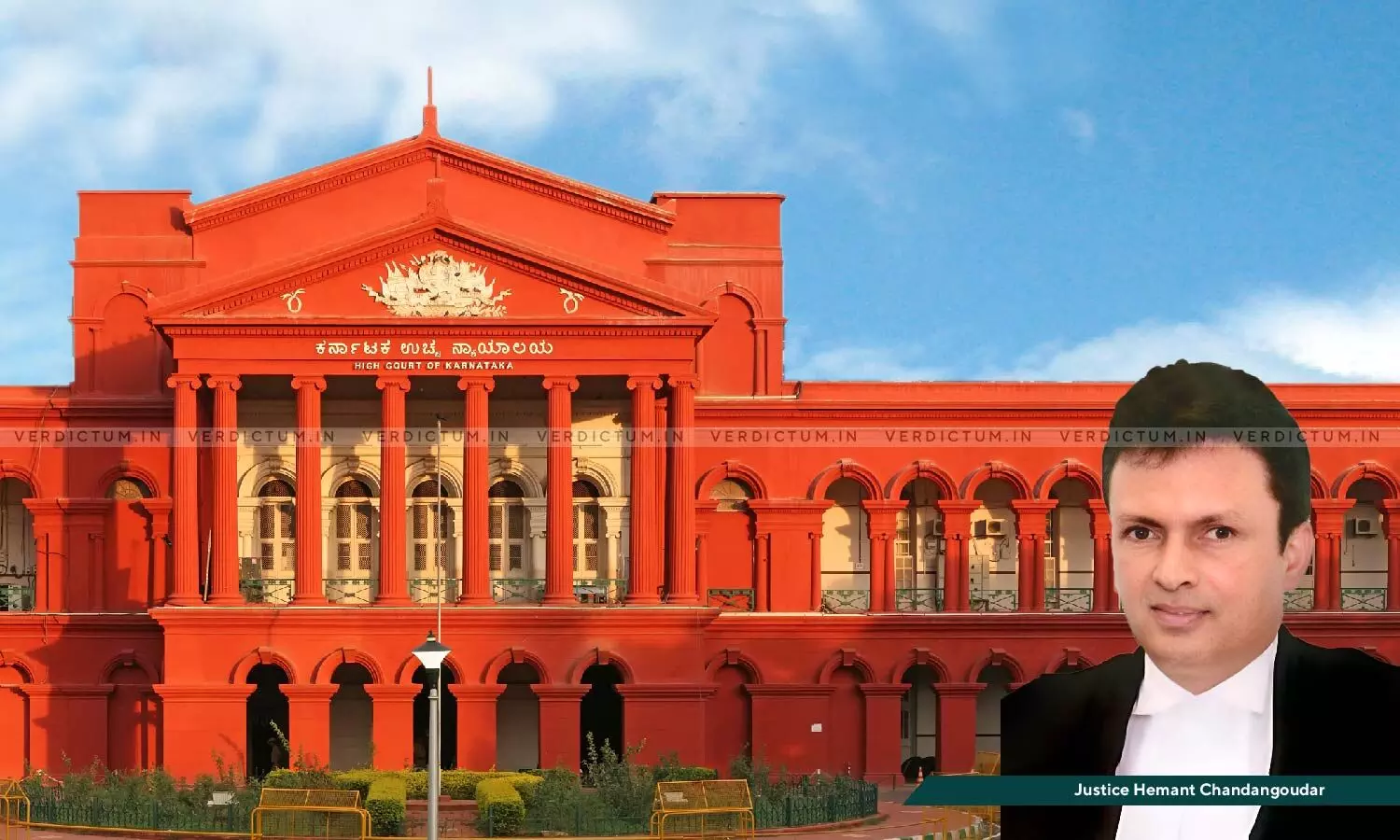< Back
High Courts

High Courts
Plaint Can Be Rejected If There Is No Valid Cause Of Action Due To Omission To Disclose A Crucial Fact: Karnataka HC
 |
|13 March 2024 5:00 AM GMT
The Karnataka High Court recently observed that a plaint can be rejected under Order VII Rule 11 of Code of Civil Procedure if there is no valid cause of action due to omission to disclose a crucial fact.
The Court held thus in a suit for title declaration where the Petitioner/defendant filed an application to reject the plaint under Order VII Rule 11 Code of Civil Procedure on the ground that the plaintiffs' claim was based on an adoption deed, which was already negated by the Civil Court.
The single bench of Justice Hemant Chandangoudar observed, “Order 6 Rule 2(1) CPC clearly stipulates that the pleading should contain the material facts. The plaintiffs have deliberately omitted to disclose a crucial fact: that Appajappa, during his lifetime, faced adverse findings from the first appellate court in R.A.No.116/1963 which declared him as not the adopted son. This fact is significant because the plaintiffs are basing their claim to the suit property on Appajappa's supposed status as the adopted son of Chikkabasappa and Nanjappa.”
In the present case, Petitioner approached the High Court after the application was dismissed by the trial Court on the ground that there was a disputed question of fact and law as to the status of the plaintiff's father as the son of Chikkabasappa and Nanjappa.
In their claim, plaintiffs said that the suit schedule property was originally owned by Chikkabasappa and his wife, Nanjamma, who had no biological children. They purportedly adopted Appajappa during their lifetime, and after their demise, Appajappa allegedly inherited and enjoyed possession of the suit properties.
Advocate Nagaraj R.C. appeared for the Petitioner and Advocate Sharath S. Gogi appeared for the Respondents.
The single bench relied on the decision of the Supreme Court in Eldeco Housing and Industries Limited vs Ashok Vidyarthi and Others and observed, “the evaluation of a plaint under Order 7 Rule 11 entails considering its averments and attached documents without considering the defendants' pleas or merits of rejection applications. The plaint's content must stand alone without alteration. Furthermore, the doctrine of res judicata cannot be used to reject a plaint, as its determination necessitates an examination of pleadings, issues, and decisions in prior suits. Therefore, the current plaint's rejection cannot be based on res judicata principles.”
The Court further noted that the plaintiff deliberately omitted to disclose the crucial fact that Appajappa, during his lifetime faced two adverse decrees, affirming that he was not adopted even then the plaintiff persisted in his claim through him.
Therefore, as per the Court, there existed no valid cause of action to initiate the suit since the adoption on which their claim hinges, remained unproven.
The Court further observed, “The suit property consists of vacant land, and it is well-established that possession follows title. Given the absence of a cause of action for maintaining a suit for declaration, it can be inferred that the defendants, being the petitioners herein, are in possession of the suit property as its rightful owners, having acquired it through a registered sale deed. The plaintiffs' argument that a suit for permanent injunction remains maintainable even if the suit for declaration is not viable holds no merit and lacks substance.”
Consequently, the Court allowed the application and rejected the suit for declaration.
Cause Title: D.N. Bhagya v. D.A. Mallikarjuna (Neutral Citation: 2024:KHC:8881)
Appearance:
Appellant: Adv. Nagaraj R.C.,
Respondent: Adv. Sharath S. Gogi, Adv. N. Murali
Click here to read/download Judgment